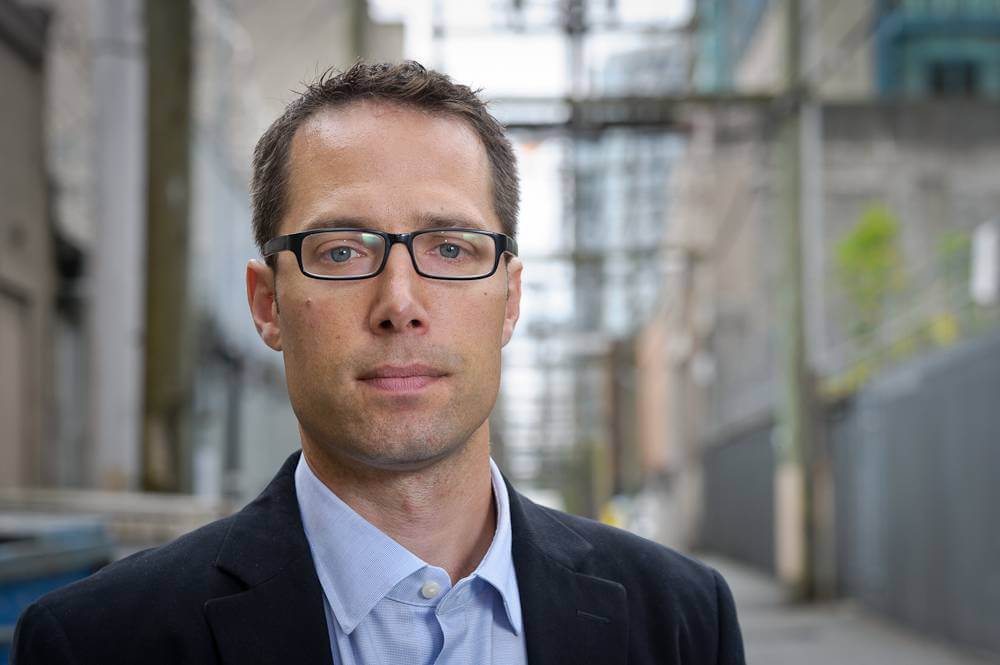Back in 2016, the peer-reviewed journal EMBO Reports published astonishing numbers on the financial fallout from mental disorders.
Three researchers at the Dresden University of Technology concluded that in 2010, the “global direct and indirect economic costs” were estimated at US$2.5 trillion.
“Mental disorders therefore account for more economic costs than chronic somatic diseases such as cancer or diabetes, and their costs are expected to increase exponentially over the next 15 years,” wrote Sebastian Trautmann, Jürgen Rehm, and Hans-Ulrich Wittchen.
Vancouver physician Evan Wood has been on the leading edge of research into the relationship between addiction and mental health for almost two decades.
In recent years, the adviser to the Global Commission on Drug Policy has seen an explosion of scientific interest in how psychedelic substances—such as MDMA and psilocybin—can be deployed in the treatment of mental illness, addiction, and posttraumatic stress disorder.
On May 21, Wood was named chief medical officer of Vancouver-based Numinus Wellness Inc., which is licensed by Health Canada to test, sell, and distribute psychedelic substances.
In a phone interview with CannCentral, Wood said that a group in New York has conducted several trials on the efficacy of psychedelics in the treatment of alcohol misuse.
At Johns Hopkins University, another group is focusing on the effects of psychedelics in helping people kick the smoking habit.
“It’s not a cure for everybody,” Wood cautioned, “but in comparison to the best available treatments we have for alcohol or nicotine addiction—and there’s some work being done in cocaine addiction as well—the rates of remission are pretty dramatic over the best available standard of care that we have to offer for those conditions. So it really looks like something is there.”

Dr. Evan Wood says research is showing the benefits of psychedelics in treating addiction. Photo by B.C. Centre for Substance Use
In addition, he said, a Multidisciplinary Association for Psychedelic Studies phase-three trial of MDMA showed that it “had a greater than 90 percent likelihood of showing a statistically significant benefit on treatment of PTSD”.
“The other phase-three trial is the Compass [Pathways] trial of psilocybin for treatment-refractory depression, which, to my understanding, is also in the late stages,” Wood noted.
He explained that psychedelic molecules do not behave like antiviral drugs that might target a receptor to induce a physiological change. Rather, Wood described it as a therapeutic process that involves taking people through an experience, which can lead to long-lasting personality changes.
According to Wood, neuroimaging studies suggest that when people are under the influence of certain psychedelics, like LSD, the prefrontal cortex—a.k.a. the brain’s CEO—and more primitive parts of the brain interact in ways that they wouldn’t do ordinarily.
And he suggested that when these new connections are forged, it can lead to the creation of more neurons in the brain. (Neurons are nerve cells that transmit information.)
“It’s a promising area, from a scientific perspective,” Wood said. “I’m really excited about it.”
The Numinus website lists the devastating toll of mental illness in Canada by the numbers: a $51-billion burden on the national economy; a half-million Canadians unable to work due to mental-health problems; 4,000 suicides per year; more than nine percent of adults who will suffer from posttraumatic stress disorder in their lifetime; and one in two who will be affected by mental-health issues by their 40th birthday.
The company went public on the Toronto Venture Exchange this month following a reverse takeover of Salvation Botanicals Ltd.
In his new position with Numinus, Wood will help the company develop treatment centres. The first is planned in Vancouver next year.
Numinus CEO Payton Nyquvest told the Straight by phone that there are “really big opportunities” to use psychedelics in treating mental health.
“We’re talking to a number of other clinics that would be interested, potentially, in acquisition, and that’s where we will be doing some of our focusing in terms of growth: going out and acquiring other clinics that are looking to get into this space,” Nyquvest said.
The company’s licence from Health Canada has been amended to allow it to test several psychedelics, including MDMA and psilocybin, in addition to testing cannabis. The licence does not authorize Numinus to produce psychedelic substances.
“But it does set us up to be able to distribute not only for our own trial work that we would like to be doing but also to be a distributor for other groups that are looking for the materials as well,” Nyquvest said.
Wood was most recently the executive director of the B.C. Centre on Substance Use, which assembled a team to look into the potential health benefits of mind-altering drugs.
He suspects that in the future, society will look back and wonder why it took so long for psychedelics to be included in the treatment of devastating and costly disorders.
“I think this intervention would be commonplace if it weren’t for the historical cultural baggage, given how promising the research has been to date,” Wood said.
















